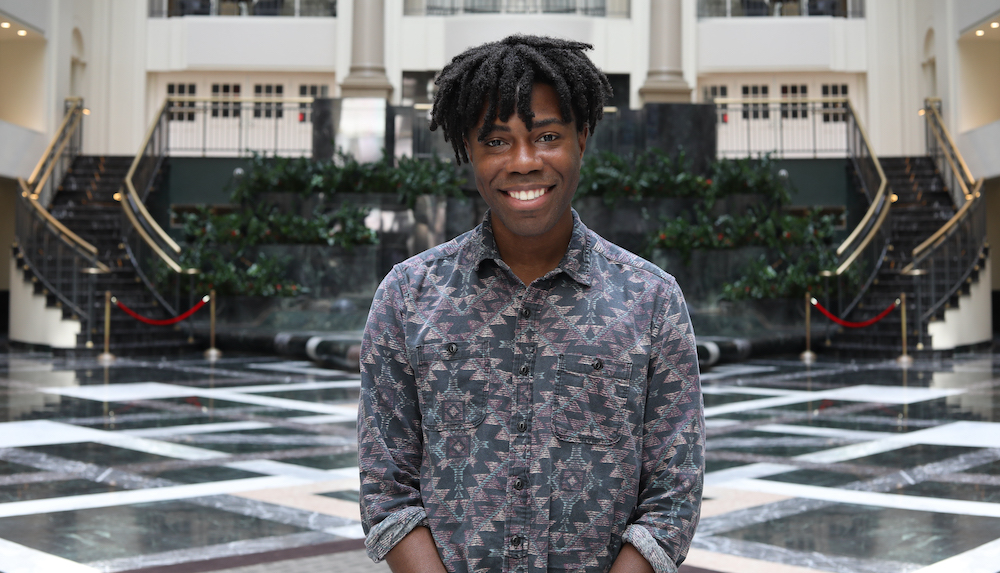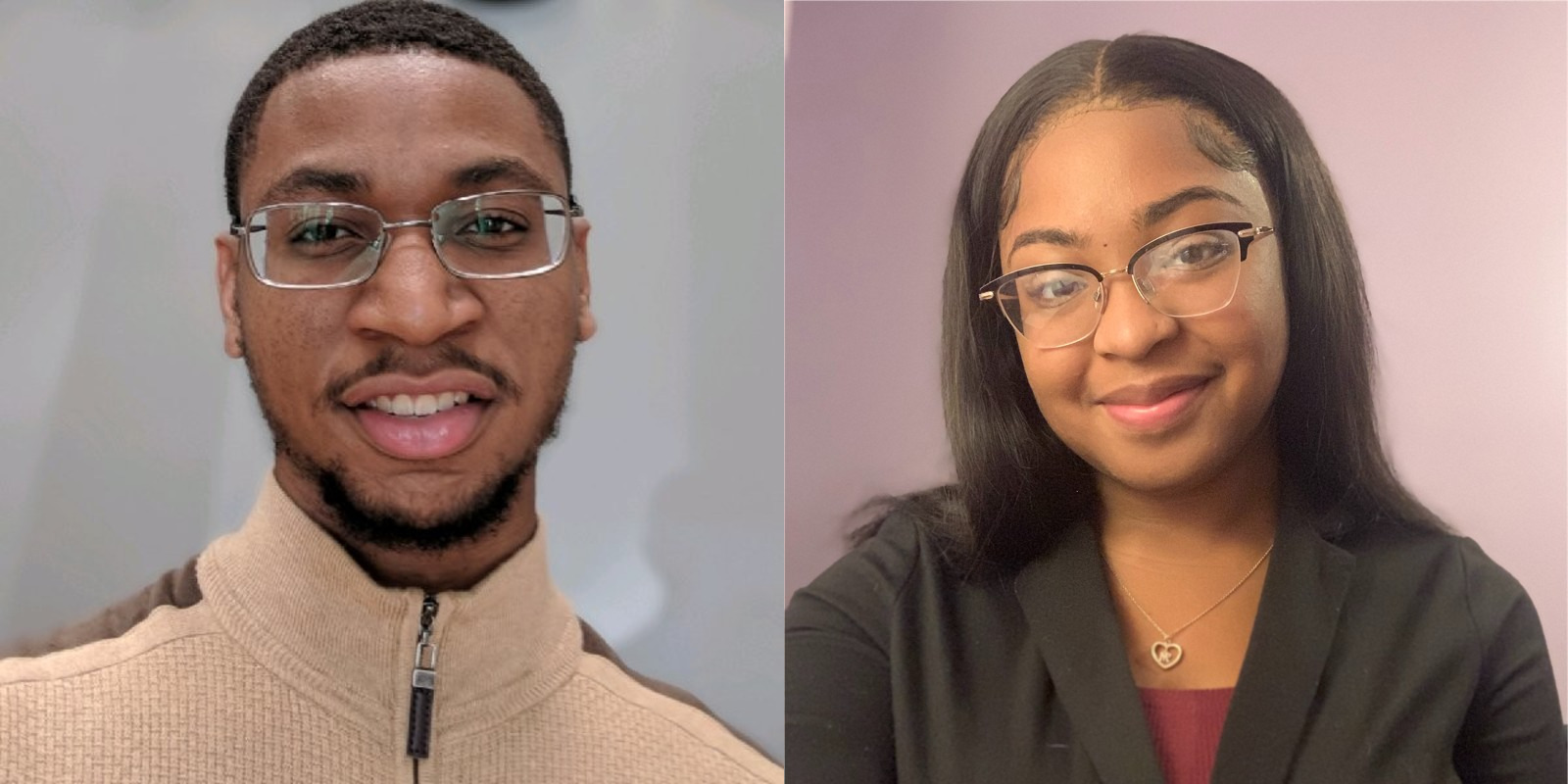In 2018, Northeast Baltimore’s Morgan State University joined a group of 10 Historically Black Colleges and Universities (HBCUs) participating in the Google Tech Exchange program. It meant that five students from Morgan State went to Google’s campus in Silicon Valley for a semester to take part in an advanced computer science training program.
The Google Tech Exchange partnership was geared toward increasing the number of Black and Latinx students getting exposure to the tech industry. It offered students at (HBCUs) and Hispanic Serving Institutions real world experience at a tech giant through applied computer science courses and tech industry projects.
It launched as, between 2014 and 2019, the number U.S. technical employees who are Black or Latinx rose by less than a percentage point at Google and Microsoft, according to reporting by Wired, based on numbers self-reported by the tech giants.
The hope was that a rising tide would raise all ships: Programs like the Google Tech Exchange and the Google in Residence program, which recruiters like April Curley were hired to improve, would lead to more Black and Latinx people being hired in the tech industry and, in turn, more hires at Google.
Technical.ly recently checked in with two of Morgan State’s participants in the Google Tech Exchange program from fall 2018, and both are working in tech: Joshua Smith is now a software engineer in JP Morgan’s Baltimore office, and Morgan Whitaker is now a product manager for Bethesda-based healthtech startup Mytonomy.
They trace the roots of these roles to the Google program.
“It made me see what I’d actually be doing, and the hardships that actually come with being in the industry,” Whitaker said.
They also got a chance to build: Smith helped developed a site with his peers that acted as an online bookclub. Whitaker developed a virtual closet with her peers that selected outfits for users based on data like the weather and wardrobe tastes.
Before the Google Tech Exchange, Whitaker was focused on machine learning and computer security, only really engaging with the subjects through research and theory at Morgan State. The Tech Exchange was hands-on, with projects that applied classroom theory. She found a reality much different than she imagined.
Machine learning meant coding all day and most nights, and it wasn’t half as fun as she imagined. Computer security didn’t have any firewall building or coding at all. Instead, it was primarily writing documents and managing people to keep their computers safe. Still, the program helped her find a path in technology.
“I thought all you could do is make a website or create an application,” said Whitaker, about her perceived career prospects with a computer science degree when she entered the program. “But I took a course out there in product management that opened my eyes to a whole other world. Diving into what people actually want in a product and what’s going to make it successful fascinated me.”
For Smith, the Google Tech Exchange didn’t change his world, it jump-started it. It offered a chance to experience things that were missing from his college program, such as getting his hands dirty in programming and applying the theory he was learning in the classroom.
The emergent experience in the Google Tech Exchange led Smith to seek out additional opportunities to apply to, and hone his software development skills. It led him to a coding bootcamp that was created through a partnership between Morgan State, Code Differently and JP Morgan Chase. It’s a “stay ready” program, meaning it trained students to be ready for interviews to land a full-time job or internship. In turn, that led to Smith acing an interview and his current position at JP Morgan.
But more than just the technical skill development, it was the networking and prestige of the Google Tech Exchange program that had a lasting effect.
“With the Google Tech Exchange program, it merged a lot of different HBCUs, and that allowed my network to grow not just with professionals, but with other like-minded, highly aspirational students,” said Smith.
A cofounder of Mytonomy, Vinay Bhargava, is a former Google exec. His curiosity about the program put Whitaker on his radar, and a conversation with her about the program eventually led to her hire at the startup.
“It’s not just something shiny that has no actual value to it,” said Smith, when asked about how it looked on his resume to be a part of the Google Tech Exchange Program, and the doors it opened up. “It’s something shiny that has extraordinary value and real experience.”
Donte Kirby is a 2020-2022 corps member for Report for America, an initiative of The Groundtruth Project that pairs young journalists with local newsrooms. This position is supported by the Robert W. Deutsch Foundation.
This editorial article is a part of Tech Career Paths Month of Technical.ly's editorial calendar.
Before you go...
Please consider supporting Technical.ly to keep our independent journalism strong. Unlike most business-focused media outlets, we don’t have a paywall. Instead, we count on your personal and organizational support.
3 ways to support our work:- Contribute to the Journalism Fund. Charitable giving ensures our information remains free and accessible for residents to discover workforce programs and entrepreneurship pathways. This includes philanthropic grants and individual tax-deductible donations from readers like you.
- Use our Preferred Partners. Our directory of vetted providers offers high-quality recommendations for services our readers need, and each referral supports our journalism.
- Use our services. If you need entrepreneurs and tech leaders to buy your services, are seeking technologists to hire or want more professionals to know about your ecosystem, Technical.ly has the biggest and most engaged audience in the mid-Atlantic. We help companies tell their stories and answer big questions to meet and serve our community.
Join our growing Slack community
Join 5,000 tech professionals and entrepreneurs in our community Slack today!

The person charged in the UnitedHealthcare CEO shooting had a ton of tech connections

The looming TikTok ban doesn’t strike financial fear into the hearts of creators — it’s community they’re worried about

Where are the country’s most vibrant tech and startup communities?



